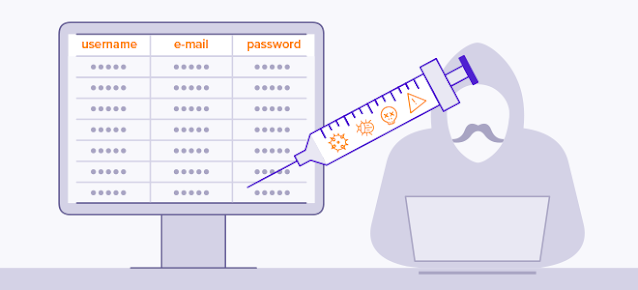How to Prevent SQL Injections on Your Website
Protecting your website from SQL injections
Welcome, dear visitors of the Content Random, to this new article about prevent SQL Injections on your website
As technology advances, so do the threats that come with it. One of the most common threats that websites face is SQL injections. SQL injections can cause significant harm to your website, from leaking confidential data to allowing hackers to gain control of your server. In this article, we will discuss what SQL injections are, how they work, and most importantly, how to prevent SQL injections on your website.
What are SQL Injections?
SQL injections are a type of cyber attack that targets web applications. They work by exploiting vulnerabilities in the website's code to gain unauthorized access to its databases. SQL injections are so dangerous because they allow hackers to execute malicious code on your website's server, granting them access to your website's data and potentially your users' personal information.
How Do SQL Injections Work?
SQL injections work by inserting malicious code into an input field on your website, such as a search bar or a login form. The malicious code is designed to exploit vulnerabilities in your website's code, allowing the attacker to bypass authentication measures and execute unauthorized SQL commands. This can give the attacker access to sensitive data or even allow them to take control of your website's server.
Read also : How to Prevent XSS on Your Website: A Comprehensive Guide
How to Prevent SQL Injections on Your Website:
1- Use Prepared Statements:Prepared statements are a type of SQL statement that allows you to separate the SQL code from the user input. This means that the user input is treated as a parameter and is not executed as code, making it impossible for an attacker to inject malicious code into the statement. Prepared statements are available in most programming languages and should be used whenever possible.
2- Sanitize User Input:Another effective way to prevent SQL injections is to sanitize all user input before using it in SQL queries. Sanitizing means removing any characters or code that could be used to inject SQL commands into your code. This can be done by using regular expressions or other sanitization libraries.
3- Limit User Permissions:Limiting user permissions is a critical step in preventing SQL injections. By limiting user permissions, you can ensure that users only have access to the data they need and nothing more. This means that even if an attacker manages to inject SQL commands into your website, they will only be able to access limited data.
4- Keep Your Software Up-to-date:Keeping your software up-to-date is another essential step in preventing SQL injections. Software updates often include security patches that address known vulnerabilities, making it harder for attackers to exploit your website's code. Make sure you update your software and libraries regularly.
FAQs:
Q: Can SQL injections only occur on login forms?
A: No, SQL injections can occur on any input field on your website, such as search bars or contact forms.
Q: How can I tell if my website has been attacked by SQL injections?
A: Common signs of a SQL injection attack include strange database activity, website errors, or unusual data being displayed on your website.
Conclusion:
Preventing SQL injections on your website is crucial to ensure the safety and security of your users and data. By using prepared statements, sanitizing user input, limiting user permissions, and keeping your software up-to-date, you can significantly reduce the risk of SQL injection attacks. Remember to always stay vigilant and keep an eye out for any unusual activity on your website. Protecting your website from SQL injections is an ongoing process, and it's essential to stay informed about the latest threats and security measures.







